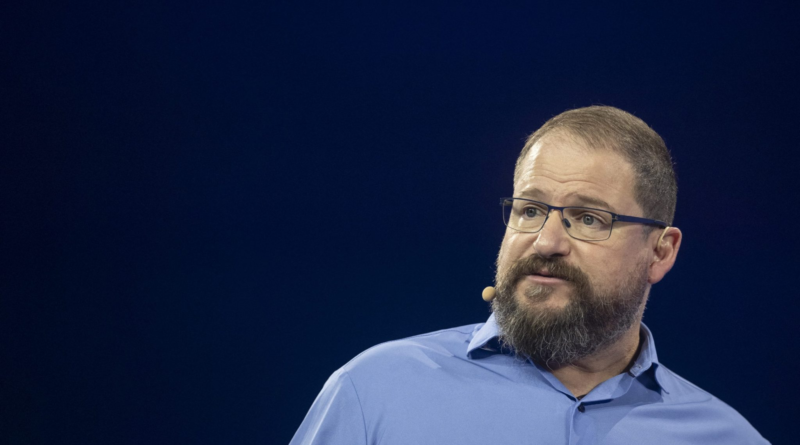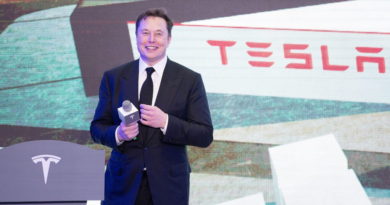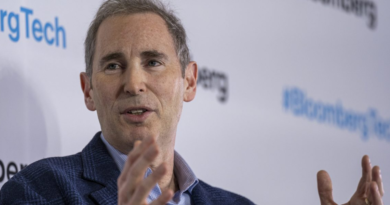Qualcomm’s Intel interest has reportedly cooled
Good morning. Let’s play a game: Which company has a billion dollars more in revenue than the maker of Snapchat, as many users as Meta’s Threads, and three times as many creators as TikTok?
If you guessed OnlyFans…you might want to clear your browsing history. But it’s true. The media platform popular for content that rhymes with “corn” is a financial force, even if it’s not to be mentioned in polite company.
Reuters recently published a harrowing investigation about trafficking on the site. It’s not for the faint of heart, but with so many tech platforms under scrutiny for playing host to inappropriate or illicit user activity—from Roblox to Telegram—it raises a familiar question: Who should be responsible? —Andrew Nusca
Want to send thoughts or suggestions to Data Sheet? Drop a line here.
Qualcomm’s Intel interest has reportedly cooled

One of the largest-ever tech deals is unlikely to happen, at least right now.
A new Bloomberg report says Qualcomm’s interest in acquiring beleaguered Intel has faded. The complications of such a deal—antitrust scrutiny around the world, $50 billion in Intel debt, Intel’s unprofitable chipmaking unit—outweighed the benefits, the report suggests.
That doesn’t mean a deal of some kind isn’t likely. San Diego-based Qualcomm could opt to buy parts of Santa Clara-based Intel or simply choose to wait until regulatory hurdles seem lower.
Intel CEO Pat Gelsinger said earlier this month that he intends to keep the company together, but it has made recent moves to sell off its Altera programmable chip unit. Intel’s current market capitalization is $107 billion; the price of its shares has dropped more than 50% this year.
In the meantime, Qualcomm CEO Cristiano Amon is on the hunt for $22 billion in additional revenue. The company expects to find it in on-demand AI and “edge devices” like personal computers, networked gadgets, and automotive.
California proposes new EV credits that exclude Tesla
President-elect Donald Trump is expected to repeal a federal subsidy for electric vehicles. California Gov. Gavin Newsom wants to create a state-based one to offset such a move.
The catch? The so-called Clean Vehicle Rebate could exclude models made by Tesla, run by vocal Trump backer Elon Musk.
The proposal restarts a program that was phased out in 2023 that offered up to $7,500 to purchase or lease a new plug-in hybrid, battery electric, or fuel cell electric vehicle. About a quarter of all new vehicles in California are zero-emission, and the state is far and away the national leader in EV adoption.
Newsom’s office told Bloomberg that Tesla’s exclusion—which is far from decided and must be negotiated with state lawmakers—would be on the basis of market share.
“It’s about creating the market conditions for more of these car makers to take root,” the governor’s office told the outlet. One of every two EVs sold in the U.S. are made by Tesla, though its share is sliding as bigger automakers catch up.
Online, Musk fumed. “Even though Tesla is the only company who manufactures their EVs in California!” Musk posted on X. “This is insane.”
Meta rolls out new Threads features to compete with Bluesky
Meta CEO Mark Zuckerberg shared on the company’s Threads microblogging service on Monday that it would allow users to choose their feed: strictly limited to who they’re “Following,” algorithmically augmented “For You,” or a custom option.
Last week, Instagram and Threads chief Adam Mosseri shared that the service would rework its “For You” algorithm to be less aggressively augmented. The service also recently added support for landscape video and reworked its search function.
Why all the feature fast-following? Good old fashioned competition. Threads, launched to great fanfare last year to capitalize on the missteps of Elon Musk’s 18-year-old X, now finds itself the Goliath to Bluesky’s David.
Bluesky’s user base has exploded from 13 million to 20 million users in recent months as X, the service formerly known as Twitter, continues to shed users. Though many have no doubt opened Threads accounts—the power of Meta’s cross-app network cannot be denied—they’re finding a sharper, less ponderous experience at Bluesky.
Nvidia unveils Fugatto, AI to modify audio
The company leading the AI hardware revolution on Monday showed off new software that can create and modify audio.
Called Fugatto, the model can generate sound effects and music on the basis of a text prompt. It can create sounds not found in the natural world (to “make a trumpet bark and a saxophone meow,” Nvidia says) or modify existing audio (John F. Kennedy’s inaugural address, but with a sad feeling and a French accent).
An advertising agency could use Fugatto to modify an existing campaign for different regions by applying different accents or emotions, Nvidia says. A video game developer could modify existing recordings to match the action of the game.
The company says it has no plans to release Fugatto, short for Foundational Generative Audio Transformer Opus 1, and trained on open source data. But Nvidia’s demonstration—similar to those made by promising players like Runway—surely caught the eyes and ears of anyone who works in the music, movie, and gaming industries.
Australia drops plans for ‘5% of revenue’ misinformation fine
Australia has dropped a plan to force Big Tech to combat disinformation and misinformation on their platforms.
The government was hoping to gain the power to fine tech firms up to 5% of their global revenue, under plans unveiled in September.
But on Sunday, the government gave up, saying it would be impossible to get the contentious law through the Australian Senate. Opposition parties and human rights experts had warned that platforms would likely over-censor content to avoid fines.
This was actually the second version introduced by the center-left Labor Party government—the first also failed to win much support.
All eyes are now on the government’s push to ban social media for under-16s. This proposal, unveiled earlier in November, has triggered furious pushback online, and Big Tech is pleading for a pause in the plans. But Australia’s major parties support the move, making it likely that it will pass very soon. —David Meyer
More data
—Japanese authorities raid Amazon. It allegedly urged sellers to lower prices in exchange for better product placement.
—Apple Intelligence faces uphill battle in China. Every time you hear “local partners,” take a shot of baijiu.
—Starbucks and other retailers hit by ransomware attack. It affected the coffee chain’s ability to pay its baristas.
—Brightcove goes private in $233m deal. Italian firm Bending Spoons scoops up the video platform in an all-cash deal.
—Zoom beats estimates with $1.18bn in Q3 revenue. AI Companion 2.0 is expected in 2025.





